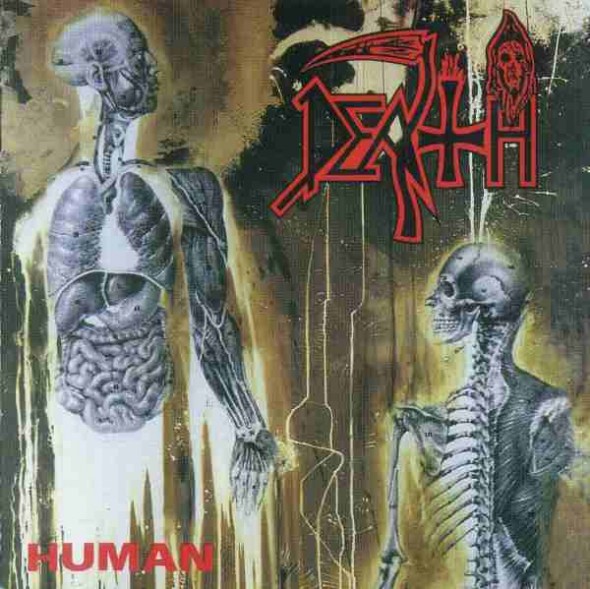This is the first of what will hopefully be an ongoing series of reviews, written in addition to reviewing newer releases, that will highlight what I (and perhaps other Hellbound writers) see as foundational and/or important extreme metal albums. Speaking for myself, having come to extreme metal and its history relatively late compared to some others, new territory for me has often been found in metal’s past as much as in its future possibilities. As often as I listen to new material, I make an equal amount of effort to listen to what many consider “essential” albums and think through how I feel about them. When I do that, however, I’m rarely focused on just the musical or lyrical elements. What I tend to focus on, especially when going back to review albums that have already had years of praise heaped upon them, is whether the whole package manages to engage or move me emotionally in some way (in a broad sense of the term). As a result the opinions I express in my contributions to this series will be very subjective. Thus, I encourage readers to share their thoughts and opinions on the albums I discuss.
So, without further ado:
Death metal as a sub-genre is one with which I have a rocky relationship. I’m generally not a huge fan of bands with gurgling vocals methodically detailing acts of murder, disembowelment, or rape. I find that a lot of technical/progressive death metal bands have a tendency to be almost emotionless in their instrumental virtuosity. While I like a good groove as much as the next person, the bands that specialize in it often fail to capture my attention for very long. Still, I’ve always been determined to give different kinds of metal a fair shake, and about two years ago I asked fellow Hellbound scribe Laura Wiebe for some death metal recommendations. Out of what she suggested, I liked some things and disliked others, but the major standout for me was an album by Chuck Schuldiner’s band Death.
To be blunt: of all the albums I’ve heard, Death’s Human is to date my favourite death metal album. That’s probably not a controversial statement to make; it’s well-regarded by many with good reason. It’s a stellar example of the Florida death metal sound. It’s not just heavy, but also catchy, with enough shifts in direction to keep its tracks sounding distinct and its pace from becoming monotonous. Human’s role in the progression of death metal is widely discussed to an extent that I won’t spend much time reiterating that here. Regardless of how engaging the album is musically, for me it is the music combined with the accessible lyrics that make it so special.
There isn’t a bad track on Human, and to detail their virtues one by one would take a much longer piece than I have space for here. There are certain highlights, however. After the rolling double-bass kicks that open “Flattening of Emotions,” the listener is greeted with Schuldiner musing aloud about the behavioural changes that people go through and what potentially caused those transformations. “Suicide Machine” is a clear condemnation of politicians and religious authorities who refuse to give people the choice to die with dignity, exemplified in lyrics such as “When it comes to living, no one seems to care/But when it comes to wanting out/Those with power, will be there.” “Together As One” demonstrates the open-ended nature of most of Human’s tracks: it could just as easily be seen as being about conjoined twins as it could be about a devouring, all-consuming romance. “Lack of Comprehension” pairs a snarling derision of those who choose to stay close-minded with hard-hitting metal, not in a way that suggests elitism, but simply disappointment and frustration. The other tracks seem to explore everything from the fear of revealing one’s inner self to contemplating the sublime nature of the other planets in our solar system. What I like best about Human is that its lyrics are not particularly pretentious or intellectual. They are subservient to the forcefulness of the music itself, but they still manage to get the point across and give the listener something to think about.
Over twenty years after its initial release and after so much accolades, Human continues to stand out as a very humane album. It wasn’t as though when Human came out Schuldiner was a stranger to more introspective, existential, and socially-conscious lyrics. As a review of Death’s catalogue shows, though he was among the pioneers of brutally heavy horror-movie-set-to-music metal, he began to branch out lyrically as well as musically almost immediately (beyond the parameters established in Human). That said, what makes the album so powerful is that this album best bridges that shift. That it works as well as it does is quite an achievement considering that, from many accounts, Schuldiner was apparently a very controlling auteur in search of perfection that he could use to silence critics. While I hesitate to call any album “perfect,” Human is a great cut of heavy music. It embodies much of metal’s concern for and obsession with material questions of existence. It remains special partly because of its historical importance for extreme metal, but also because it stands out as a prime example (out of many) that it is very possible to merge anger and aggression in extreme metal with a compassionate search for answers to social and philosophical questions. Death was definitely not the first band (and certainly not the last) to do this, but combined with its musical power Human remains a stellar release.
A deluxe reissue of Human is available now on Relapse Records.
